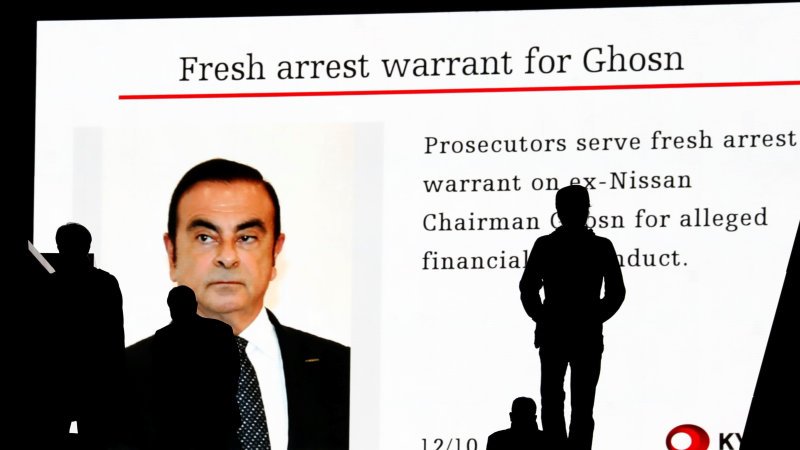Carlos Ghosn wanted to retrieve cash, artwork from Rio apartment

Ousted Nissan Chairman Carlos Ghosn sought to retrieve "personal belongings, documents, cash, objects and art pieces" from a Rio de Janeiro apartment that the carmaker says could contain evidence of financial misconduct, according to a Brazil court filing by Nissan last week.
The previously unreported court papers show the extent of the legal dispute between Ghosn and Nissan over access to the apartment, one of several the former executive had access to around the world. Ghosn is accused of underreporting his income by tens of millions of dollars.
The Rio apartment, which the carmaker says it owns, contains three safes that Nissan has yet to open, according to the filing. The carmaker said it found the safes when it did an audit of the apartment following Ghosn's firing. It added the apartment also has "designer furniture, artwork and decorative objects."
The court proceedings started Nov. 29 when a lawyer for Ghosn asked a judge to grant him access to the apartment. Nissan says granting Ghosn access would "represent an incalculable risk of destruction of potential evidence of crimes allegedly committed." Ghosn has so far been denied access.
A lawyer for Ghosn, Jose Roberto de Castro Neves, told Reuters he was unaware of the existence of three different safes and that it was "absurd speculation" that they may contain evidence of wrongdoing.
"He's a very smart guy," de Castro Neves said. "If he had done something wrong, he would never leave it in the apartment."
Tokyo prosecutors on Monday indicted Ghosn for under-reporting his income and also officially charged the automaker, making the firm culpable for the financial misconduct scandal.
Ghosn was arrested on Nov. 19 on suspicion of conspiring to understate his compensation by about half of the actual 10 billion yen ($88 million) over five years from 2010.
He has been held in a Tokyo jail since then for questioning, but had not been officially charged until now. Prosecutors re-arrested him on Monday on fresh allegations of understating his income for three more years through March 2018.
Nissan, which fired Ghosn as chairman days after his arrest, has said the misconduct was masterminded by the once-celebrated executive with the help of former Representative Director Greg Kelly, who was also indicted for the first time on Monday.
Ghosn and Kelly have not made any statement through their lawyers, but Japanese media reported that they have denied the allegations. Calls to Ghosn's lawyer, Motonari Otsuru, at his office went unanswered.
Nissan, indicted for filing false financial statements, said it takes the charge seriously.
"Making false disclosures in annual securities reports greatly harms the integrity of Nissan's public disclosures in the securities markets, and the company expresses its deepest regret," it said, adding it will correct past financial reports to include appropriate compensation figures.
Japan's securities watchdog, the Securities and Exchange Surveillance Commission (SESC), said the crime carried a fine of up to 700 million yen ($6.2 million).
Analysts and legal experts say it will be difficult for Nissan and its Chief Executive Hiroto Saikawa to avoid blame, regardless of whether other executives knew about Ghosn's misconduct or that the company lacked internal controls.
"It becomes difficult to overlook Saikawa's role in all of this. That becomes the main focus now," prominent lawyer and former prosecutor Nobuo Gohara said.
Ghosn, if convicted, faces up to 10 years in prison and/or 10 million yen in fines.
